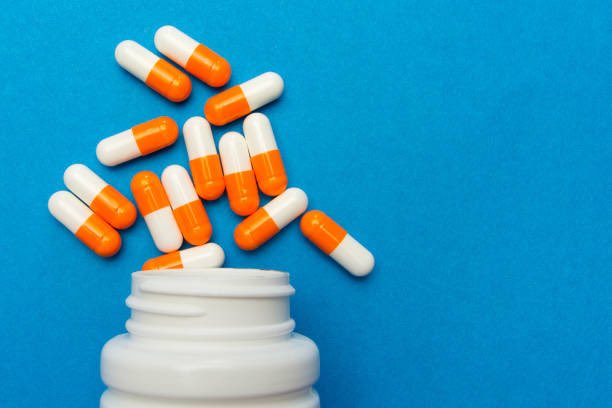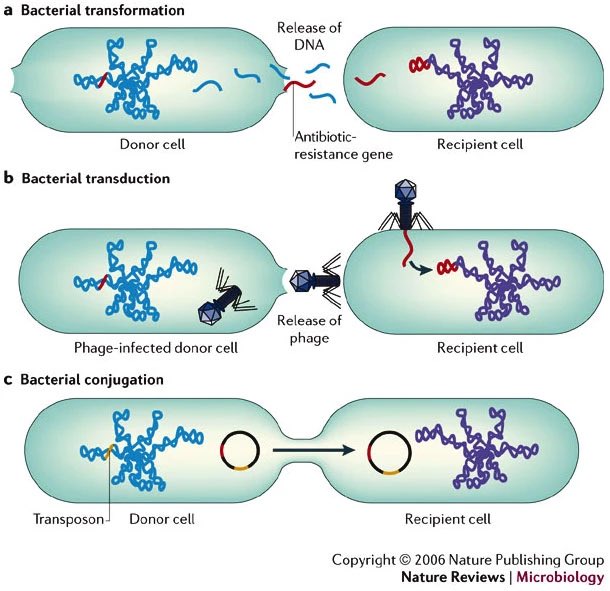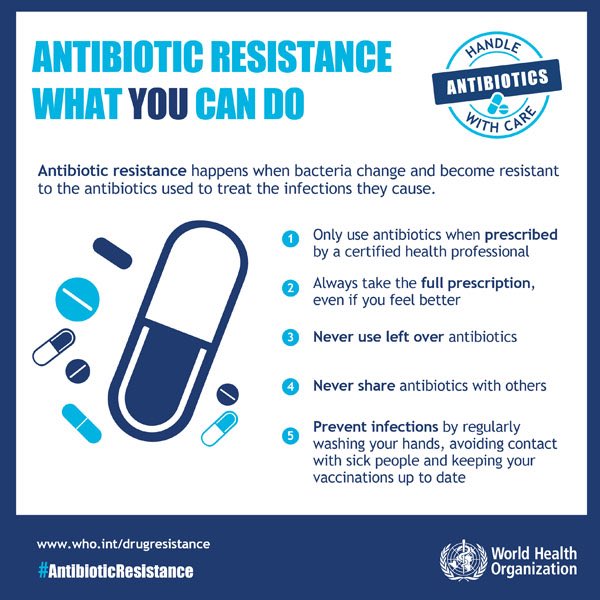Hey everyone, my name is Charlie and I am taking part in the #GlobalScienceShow, following on from @marinemumbles!
Today I’ll be discussing #antibioticresistance in the #environment! https://abs.twimg.com/emoji/v2/... draggable="false" alt="💊" title="Tablette" aria-label="Emoji: Tablette">
https://abs.twimg.com/emoji/v2/... draggable="false" alt="💊" title="Tablette" aria-label="Emoji: Tablette"> https://abs.twimg.com/emoji/v2/... draggable="false" alt="🌿" title="Kräuter" aria-label="Emoji: Kräuter">
https://abs.twimg.com/emoji/v2/... draggable="false" alt="🌿" title="Kräuter" aria-label="Emoji: Kräuter"> https://abs.twimg.com/emoji/v2/... draggable="false" alt="🐄" title="Kuh" aria-label="Emoji: Kuh">
https://abs.twimg.com/emoji/v2/... draggable="false" alt="🐄" title="Kuh" aria-label="Emoji: Kuh">
Follow the show and check out @DrStephenHendry next!
@GlobalSciShow #ScienceFromHome
Today I’ll be discussing #antibioticresistance in the #environment!
Follow the show and check out @DrStephenHendry next!
@GlobalSciShow #ScienceFromHome
According to @WHO, “antibiotic resistance is one of the biggest threats to #globalhealth, food, security and development today and can affect anyone, of any age, in any country”  https://abs.twimg.com/emoji/v2/... draggable="false" alt="🌍" title="Europa-Afrika auf dem Globus" aria-label="Emoji: Europa-Afrika auf dem Globus">
https://abs.twimg.com/emoji/v2/... draggable="false" alt="🌍" title="Europa-Afrika auf dem Globus" aria-label="Emoji: Europa-Afrika auf dem Globus">
Although the relevance isn’t only medical, it can be ecological and affect the environment too! https://abs.twimg.com/emoji/v2/... draggable="false" alt="🌱" title="Setzling" aria-label="Emoji: Setzling">
https://abs.twimg.com/emoji/v2/... draggable="false" alt="🌱" title="Setzling" aria-label="Emoji: Setzling">
Although the relevance isn’t only medical, it can be ecological and affect the environment too!
Antibiotic resistance has been around far longer than antibiotics have, as most antibiotics are natural molecules!  https://abs.twimg.com/emoji/v2/... draggable="false" alt="💊" title="Tablette" aria-label="Emoji: Tablette">
https://abs.twimg.com/emoji/v2/... draggable="false" alt="💊" title="Tablette" aria-label="Emoji: Tablette">
This means bacteria have been interacting with these molecules since ancient times https://abs.twimg.com/emoji/v2/... draggable="false" alt="🦖" title="T-Rex" aria-label="Emoji: T-Rex"> - so bacteria have evolved to be resistant over time to survive!
https://abs.twimg.com/emoji/v2/... draggable="false" alt="🦖" title="T-Rex" aria-label="Emoji: T-Rex"> - so bacteria have evolved to be resistant over time to survive!  https://abs.twimg.com/emoji/v2/... draggable="false" alt="💪🏻" title="Angespannter Bizeps (heller Hautton)" aria-label="Emoji: Angespannter Bizeps (heller Hautton)">
https://abs.twimg.com/emoji/v2/... draggable="false" alt="💪🏻" title="Angespannter Bizeps (heller Hautton)" aria-label="Emoji: Angespannter Bizeps (heller Hautton)">
This means bacteria have been interacting with these molecules since ancient times
This resistance can be intrinsic (already in the bacterial chromosome  https://abs.twimg.com/emoji/v2/... draggable="false" alt="🧬" title="DNA" aria-label="Emoji: DNA">) or acquired (usually via horizontal gene transfer, but can be a genetic mutation).
https://abs.twimg.com/emoji/v2/... draggable="false" alt="🧬" title="DNA" aria-label="Emoji: DNA">) or acquired (usually via horizontal gene transfer, but can be a genetic mutation).
Essentially, the bacteria can either be ‘born’ with it, or acquire it at some point in its lifetime.
Essentially, the bacteria can either be ‘born’ with it, or acquire it at some point in its lifetime.
Horizontal gene transfer for acquired resistance can happen in 3 ways: transformation, transduction (via bacteriophage viruses) and conjugation, this is explained well in the article linked!!  https://abs.twimg.com/emoji/v2/... draggable="false" alt="🧬" title="DNA" aria-label="Emoji: DNA">
https://abs.twimg.com/emoji/v2/... draggable="false" alt="🧬" title="DNA" aria-label="Emoji: DNA">
img: https://www.nature.com/articles/nrmicro1325/figures/2">https://www.nature.com/articles/...
img: https://www.nature.com/articles/nrmicro1325/figures/2">https://www.nature.com/articles/...
According to UKGov POSTnote 595 (2019) there are 3 reservoirs of antibiotic resistance: humans  https://abs.twimg.com/emoji/v2/... draggable="false" alt="👩🏻🤝👨🏼" title=" (heller Hautton)" aria-label="Emoji: (heller Hautton)">, animals
https://abs.twimg.com/emoji/v2/... draggable="false" alt="👩🏻🤝👨🏼" title=" (heller Hautton)" aria-label="Emoji: (heller Hautton)">, animals  https://abs.twimg.com/emoji/v2/... draggable="false" alt="🐄" title="Kuh" aria-label="Emoji: Kuh"> and the environment
https://abs.twimg.com/emoji/v2/... draggable="false" alt="🐄" title="Kuh" aria-label="Emoji: Kuh"> and the environment  https://abs.twimg.com/emoji/v2/... draggable="false" alt="🌱" title="Setzling" aria-label="Emoji: Setzling">
https://abs.twimg.com/emoji/v2/... draggable="false" alt="🌱" title="Setzling" aria-label="Emoji: Setzling">
Antibiotics are found in the environment both naturally occurring and through human/animal use (e.g. in wastewater/manure), affecting bacteria!
Antibiotics are found in the environment both naturally occurring and through human/animal use (e.g. in wastewater/manure), affecting bacteria!
Antibiotic pollution is a big environmental issue - this is where antibiotics are found in rivers and soil following human/animal use, or in pharmaceutical factory waste.  https://abs.twimg.com/emoji/v2/... draggable="false" alt="💊" title="Tablette" aria-label="Emoji: Tablette">
https://abs.twimg.com/emoji/v2/... draggable="false" alt="💊" title="Tablette" aria-label="Emoji: Tablette"> https://abs.twimg.com/emoji/v2/... draggable="false" alt="☣️" title="Symbol für Bio-Gefährdung" aria-label="Emoji: Symbol für Bio-Gefährdung">
https://abs.twimg.com/emoji/v2/... draggable="false" alt="☣️" title="Symbol für Bio-Gefährdung" aria-label="Emoji: Symbol für Bio-Gefährdung">
This can encourage resistance, and encourage the spread of acquired resistance as explained earlier.
This can encourage resistance, and encourage the spread of acquired resistance as explained earlier.
There’s some rules we can all follow to combat the spread of antibiotic resistance!  https://abs.twimg.com/emoji/v2/... draggable="false" alt="💊" title="Tablette" aria-label="Emoji: Tablette">
https://abs.twimg.com/emoji/v2/... draggable="false" alt="💊" title="Tablette" aria-label="Emoji: Tablette">
Take a look at this little @WHO infographic!
MAJOR POINT - if for any reason you have leftover tablets - do not dispose at home! Take them to your local pharmacy!! https://abs.twimg.com/emoji/v2/... draggable="false" alt="🏥" title="Krankenhaus" aria-label="Emoji: Krankenhaus">
https://abs.twimg.com/emoji/v2/... draggable="false" alt="🏥" title="Krankenhaus" aria-label="Emoji: Krankenhaus">
Take a look at this little @WHO infographic!
MAJOR POINT - if for any reason you have leftover tablets - do not dispose at home! Take them to your local pharmacy!!
To finish with, I like this little quiz by @WHO - https://www.who.int/campaigns/world-antibiotic-awareness-week/quiz/en/">https://www.who.int/campaigns...
I hope you’ve all enjoyed this thread, and thank you @GlobalSciShow! #ScienceFromHome #GlobalScienceShow - check out @DrStephenHendry next!
I hope you’ve all enjoyed this thread, and thank you @GlobalSciShow! #ScienceFromHome #GlobalScienceShow - check out @DrStephenHendry next!
For more information on antibiotic resistance, check out @WHO, @1Antruk, @APPGantibiotics and @saveantibiotics!
Feel free to ask me any questions too! Thank you!!
Feel free to ask me any questions too! Thank you!!

 Read on Twitter
Read on Twitter Although the relevance isn’t only medical, it can be ecological and affect the environment too! https://abs.twimg.com/emoji/v2/... draggable="false" alt="🌱" title="Setzling" aria-label="Emoji: Setzling">" title="According to @WHO, “antibiotic resistance is one of the biggest threats to #globalhealth, food, security and development today and can affect anyone, of any age, in any country” https://abs.twimg.com/emoji/v2/... draggable="false" alt="🌍" title="Europa-Afrika auf dem Globus" aria-label="Emoji: Europa-Afrika auf dem Globus">Although the relevance isn’t only medical, it can be ecological and affect the environment too! https://abs.twimg.com/emoji/v2/... draggable="false" alt="🌱" title="Setzling" aria-label="Emoji: Setzling">" class="img-responsive" style="max-width:100%;"/>
Although the relevance isn’t only medical, it can be ecological and affect the environment too! https://abs.twimg.com/emoji/v2/... draggable="false" alt="🌱" title="Setzling" aria-label="Emoji: Setzling">" title="According to @WHO, “antibiotic resistance is one of the biggest threats to #globalhealth, food, security and development today and can affect anyone, of any age, in any country” https://abs.twimg.com/emoji/v2/... draggable="false" alt="🌍" title="Europa-Afrika auf dem Globus" aria-label="Emoji: Europa-Afrika auf dem Globus">Although the relevance isn’t only medical, it can be ecological and affect the environment too! https://abs.twimg.com/emoji/v2/... draggable="false" alt="🌱" title="Setzling" aria-label="Emoji: Setzling">" class="img-responsive" style="max-width:100%;"/>
 img: https://www.nature.com/articles/..." title="Horizontal gene transfer for acquired resistance can happen in 3 ways: transformation, transduction (via bacteriophage viruses) and conjugation, this is explained well in the article linked!! https://abs.twimg.com/emoji/v2/... draggable="false" alt="🧬" title="DNA" aria-label="Emoji: DNA">img: https://www.nature.com/articles/..." class="img-responsive" style="max-width:100%;"/>
img: https://www.nature.com/articles/..." title="Horizontal gene transfer for acquired resistance can happen in 3 ways: transformation, transduction (via bacteriophage viruses) and conjugation, this is explained well in the article linked!! https://abs.twimg.com/emoji/v2/... draggable="false" alt="🧬" title="DNA" aria-label="Emoji: DNA">img: https://www.nature.com/articles/..." class="img-responsive" style="max-width:100%;"/>
 Take a look at this little @WHO infographic! MAJOR POINT - if for any reason you have leftover tablets - do not dispose at home! Take them to your local pharmacy!! https://abs.twimg.com/emoji/v2/... draggable="false" alt="🏥" title="Krankenhaus" aria-label="Emoji: Krankenhaus">" title="There’s some rules we can all follow to combat the spread of antibiotic resistance! https://abs.twimg.com/emoji/v2/... draggable="false" alt="💊" title="Tablette" aria-label="Emoji: Tablette"> Take a look at this little @WHO infographic! MAJOR POINT - if for any reason you have leftover tablets - do not dispose at home! Take them to your local pharmacy!! https://abs.twimg.com/emoji/v2/... draggable="false" alt="🏥" title="Krankenhaus" aria-label="Emoji: Krankenhaus">" class="img-responsive" style="max-width:100%;"/>
Take a look at this little @WHO infographic! MAJOR POINT - if for any reason you have leftover tablets - do not dispose at home! Take them to your local pharmacy!! https://abs.twimg.com/emoji/v2/... draggable="false" alt="🏥" title="Krankenhaus" aria-label="Emoji: Krankenhaus">" title="There’s some rules we can all follow to combat the spread of antibiotic resistance! https://abs.twimg.com/emoji/v2/... draggable="false" alt="💊" title="Tablette" aria-label="Emoji: Tablette"> Take a look at this little @WHO infographic! MAJOR POINT - if for any reason you have leftover tablets - do not dispose at home! Take them to your local pharmacy!! https://abs.twimg.com/emoji/v2/... draggable="false" alt="🏥" title="Krankenhaus" aria-label="Emoji: Krankenhaus">" class="img-responsive" style="max-width:100%;"/>


